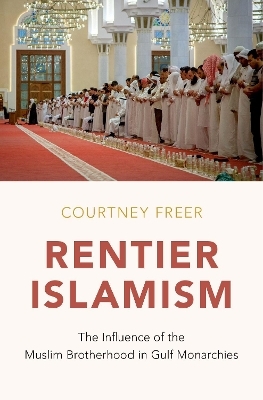
Rentier Islamism
Oxford University Press Inc (Verlag)
978-0-19-086199-5 (ISBN)
In the monarchical systems of Qatar and the UAE, Islamist groups do not have the opportunity to compete for power and therefore cannot use the ballot box to gain popularity or influence political life, as they do elsewhere in the Middle East. But, as this book points out, the division between the social and political sectors is often blurred in the socially conservative states of the Gulf, as political actors operate through channels that are not institutionalized. Simply because politics is underinstitutionalized in such states does not mean that it is underdeveloped; the informal realm holds considerable political capital. As such, the book argues that Brotherhood movements have managed to use the links between the social (i.e. informal personal networks) and political (i.e. government institutions) to gain influence in policymaking in such states.Using contemporary history and original empirical research, Courtney Freer updates traditional rentier state theory and argues that political Islam serves as a prominent voice and tool to promote more strictly political, and often populist or reformist, views supported by many Gulf citizens.
Courtney Freer is a Research Officer at the Kuwait Programme at London School of Economics and Political Science, where her work focuses on the domestic politics of the Gulf states. She has published in the International Journal of Middle East Studies and Middle Eastern Studies.
Introduction - Uncharted Territory: Political Islam and Rentier States
Part I: Origins
Chapter Two - No Taxation, No Representation?: Political Opposition in Rentier States and the Origins of Muslim Brotherhood Movements in the Gulf
Chapter Three - Systems of Governance and Politics of Opposition in the Super-Rentiers
Part II: Rise and Fall
Chapter Four - Education and Influence: Origins of Rentier Islamism
Chapter Five - Politicians or Preachers?: The Development of Rentier Islamist Agendas in a Post-Arab Nationalist Era
Part III: Modern Rentier Islamism
Chapter Six - Rentier Islamism after Pan-Arabism
Chapter Seven - Challenges and Opposition in the 21st Century
Chapter Eight - Conclusion: Rentier Islamism: Explaining Ikhwan Politics in the Super-Rentiers
Notes
References
Index
| Erscheinungsdatum | 12.06.2018 |
|---|---|
| Verlagsort | New York |
| Sprache | englisch |
| Maße | 236 x 157 mm |
| Gewicht | 794 g |
| Themenwelt | Geisteswissenschaften ► Religion / Theologie ► Islam |
| Recht / Steuern ► EU / Internationales Recht | |
| Sozialwissenschaften ► Politik / Verwaltung ► Politische Systeme | |
| Sozialwissenschaften ► Politik / Verwaltung ► Politische Theorie | |
| ISBN-10 | 0-19-086199-1 / 0190861991 |
| ISBN-13 | 978-0-19-086199-5 / 9780190861995 |
| Zustand | Neuware |
| Haben Sie eine Frage zum Produkt? |
aus dem Bereich


